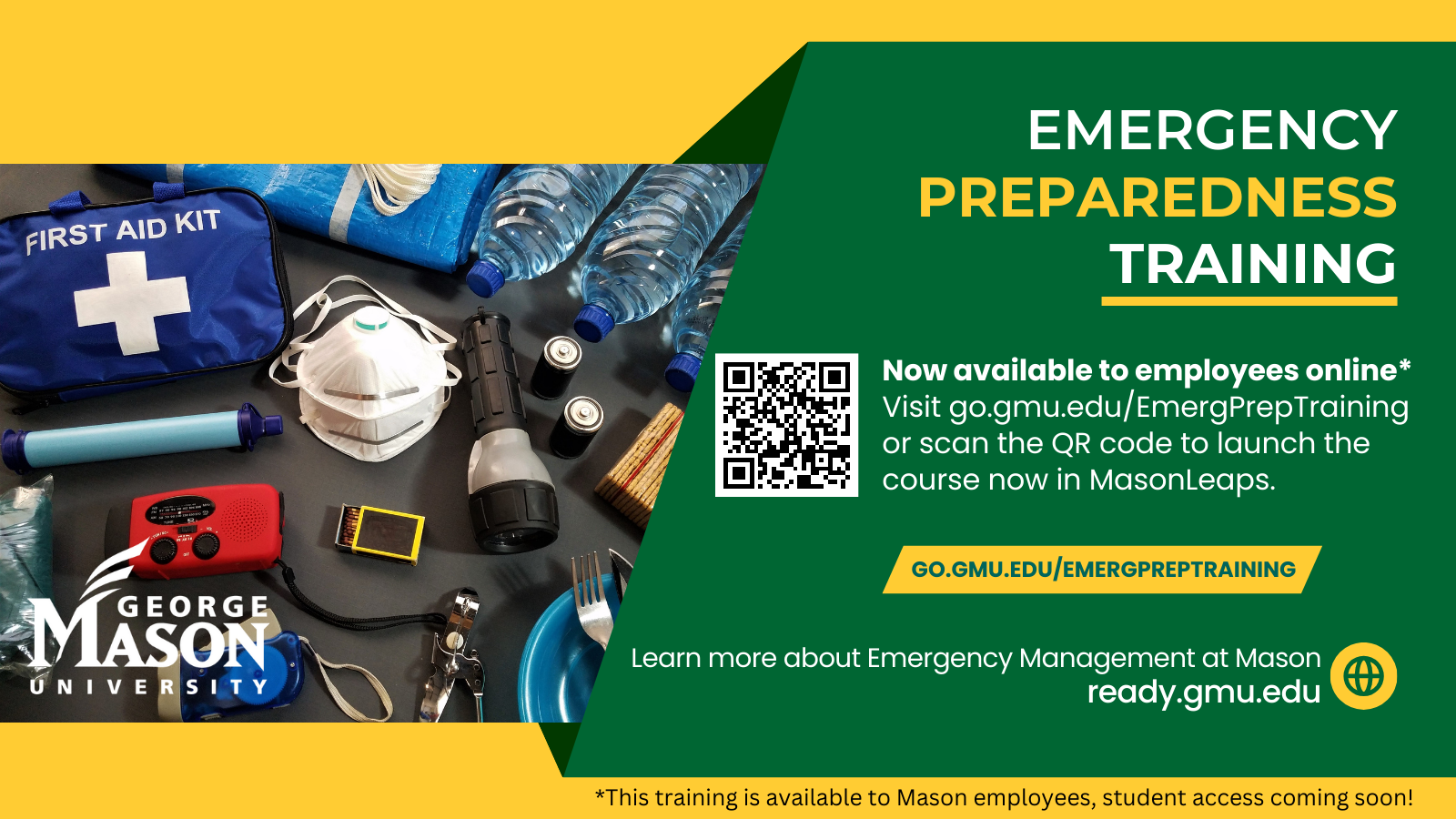Dear Faculty and Staff,
George Mason University strives to be a place where everyone can thrive, and that means being aware of how to make and keep our campus safe. We encourage you to become familiar with the university’s building evacuation procedures and fire safety resources. The university is required to inform you of these procedures under Occupational Safety and Health Administration regulations.
Evacuation Procedures: The following procedures must be observed when a fire alarm occurs, or you are notified to evacuate a building by Mason Alert or emergency response personnel.
- If you become aware of a dangerous situation that requires evacuation, activate the fire alarm by using a manual pull stationlocated next to a building exit door.
- Notify Emergency Responders by dialing 911 and report the situation and associated details if known.
- Do not use elevators during a fire or evacuation.
- Assist individuals with physical disabilities and those unfamiliar with evacuation procedures.
- Exit the building by way of the nearest safe exit. Please note that the safest exit may be different than the one you use on a daily basis.
- Assemble outside of the building (at pre-designated assembly area identified by your office/unit), take account of your colleagues, and await further instruction from emergency response personnel.
- Report missing persons to emergency response personnel.
- Do not re-enter the building until authorized to do so by University Police or emergency response personnel.
Evacuation and Fire Safety Plans: All university buildings have Evacuation Plans posted that identify primary and alternate evacuation routes, fire extinguisher locations, pull station locations, and the location of available automated external defibrillators(AEDs). Evacuation Plans also indicate recommended designated assembly areas; however, each office is encouraged to identify their own designated assembly area and record it in the Emergency Procedures Guide (flip book) provided by Emergency Management. If your office/unit requires Emergency Procedures Guides, please contact Emergency Management at safety@gmu.edu.
Specific instructions on how to evacuate a building are documented in the university’s Emergency Evacuation Guide. The university also maintains a Fire Safety Plan that is available to faculty and staff which outlines the strategies and procedures used to protect buildings and work areas from fires.
Thank you for taking the time to educate yourself on the university’s fire safety procedures. If you have any questions or concerns about Mason’s emergency and fire safety programs, please contact SEERM at safety@gmu.edu or 703-993-8448.
Safety, Emergency, & Enterprise Risk Management
703-993-8448


